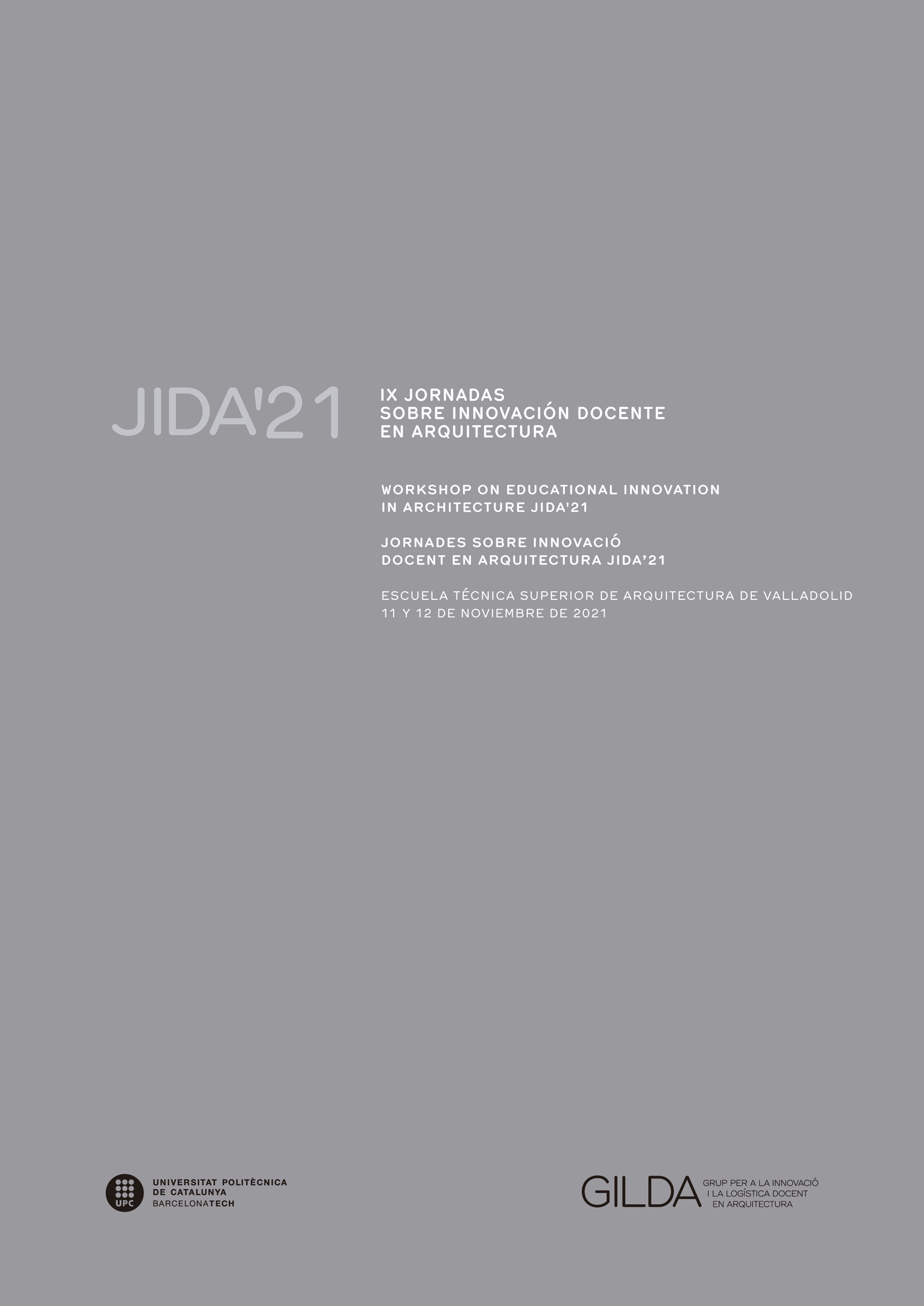The research lab as a form of teaching: a case of reciprocal learning
DOI:
https://doi.org/10.5821/jida.2021.10620Keywords:
research teaching, pedagogical strategies, collaborative reading, empiricism, architectural modelsAbstract
Due to the initial pandemic context of the year 2020, a series of pedagogical explorations began to be carried out in institutions of higher education around the world. The physical distance between teachers and students, and the improbability of acquiring technical materials and instruments, in addition to domestic overcrowding and psychological conditions, have been decisive factors for the
implementation of new ways of teaching architecture. The quantity and quality decrease of homework and the flexibility to attend classes have been evident and
transversal strategies in the Chilean context. Nonetheless, this article aims to discuss and sustain the contrary: increasing the quality of assignments and tasks,
considering reciprocal learning in a research laboratory setting, is positive and fruitful in order to avoid student demotivation, strengthen ties between students and
teachers and reach a high level in terms of results.
References
FRACALOSSI, I. (2018). Volver a la cercanía. Casa en Jean Mermoz (1956-1961-1992). Tesis Doctoral. Santiago, Chile: Pontificia Universidad Católica de Chile. <http://repositorio.uc.cl/xmlui/handle/11534/26887> [Consulta: 11 de septiembre de 2013]
FRACALOSSI, I. (2020). “Against Analogy. Understanding Through Creation: The Role of Scale Models as a Means of Architectural”. Colmenares, S. y Medrano, L. (dir.). En: IV International Conference on Architectural Design and Criticism. Madrid: critic|all PRESS + Departamento de Proyectos Arquitectónicos (ETSAM UPM). 236-244. Disponible en <http://criticall.es/wp-content/uploads/2021/04/090421_ACTAS-DIGITALES-CONGRESO_compressed.pdf> [Consulta: 11 de septiembre de 2013]






















